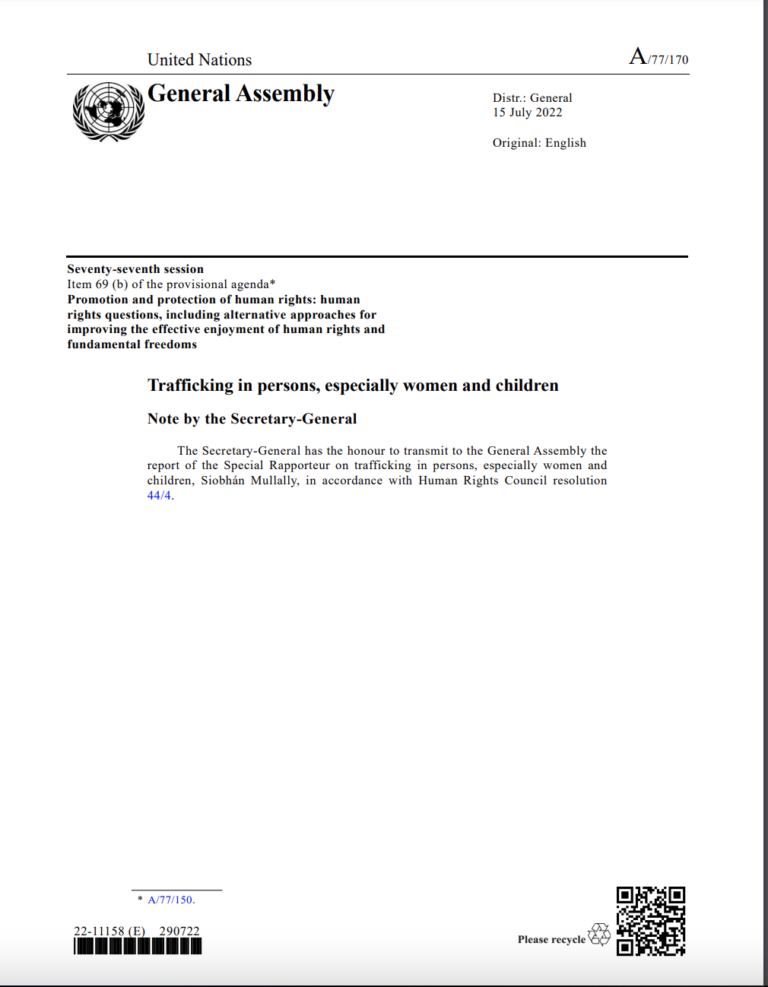The heightened risks of trafficking in the context of climate change are rooted
in existing and persistent inequalities, in poverty, in racism, and in discrimination.
These heightened risks and vulnerability to exploitation are not inevitable or fixed,
nor are they inherent in the human condition. They arise from policy failures, failures
of political will and failures of international cooperation and solidarity. Recognizing
these risks is essential to ensuring effective prevention of trafficking and to ensuring
that the gender dimensions of such risks are recognized. In the present report, the
Special Rapporteur on trafficking in persons, especially women and children, Siobhán
Mullally, analyses how gender shapes the experiences of climate-related disasters,
displacement and migration and highlights how the negative impact of climate
change, and of both sudden and slow-onset disasters, is shaped by gendered
inequalities and systemic discrimination. Such inequalities overlap with and reinforce
existing experiences of discrimination, including on the grounds of disability, race
and ethnicity, migration status, age and religion. Taking seriously the obligations
concerning prevention of trafficking in persons requires systemic and urgent law and
policy reforms, rooted in international human rights law, addressing climate change,
environmental degradation and loss of biodiversity. It also requires implementation
and effective enforcement of the principle of non-discrimination, a core principle of
international human rights law, and realization of the objective of expanding safe,
orderly and regular migration, underpinned by the protection of human rights.

